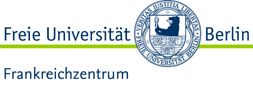


Joint International and Interdisciplinary Conference
|
Experience, Memory and Media Transmitting the Revolutionary and Napoleonic Wars in 19th and 20th Century Europe October, Thursday 11 – Saturday 13, 2007 University of Mannheim, Schloss, Senatssaal Sponsored by the University of
Mannheim, the German Research Foundation,
|
Aims and Agenda
“In the beginning was Napoleon” – this famous sentence from Thomas Nipperdey's History of Germany applies also to large parts of Europe. Notwithstanding Nipperdey's strong focus on the person of Napoleon it seems unquestionable that the Napoleonic Empire and the French Revolution, which preceded it constituted a crucial turning point in European history. The military expansion of France ensured that hardly any part of Europe remained untouched by these revolutionary transformations. Both the wider population and the soldiers directly involved in the fighting were drawn into the vortex of the wars, which raged across Europe between 1792 and 1815. Influenced by the experiences and memories of these wars, the self-perceptions and the perceptions of the other held by the inhabitants of European states and regions changed fundamentally. Unlike any other era, the period of 1792–1815 created ideas of ethnic, religious and national identity.
The experience and memory of the Revolutionary and Napoleonic Wars had
an enduring influence on the collective memory of all European nations
and regions and have given them an international dimension. Since
summer 2005 the Anglo-German project Nations, Borders and Identities
has been analysing the experience and memory of the Revolutionary and
Napoleonic Wars within a comparative European perspective, while paying
particular attention to issues of national transfer. The project
concentrates on France, England and Ireland, Austria and Prussia,
Poland, and Russia. The aim of this conference is to discuss this
research in a broader European context. The main focus will be the
transmission of experience and memory through the various media, which
constitute their material dimension. While the proponents of different
theoretical approaches – Aby
Warburg, Pierre
Nora, Aleida
and Jan Assmann
– emphasise the importance of the media in constructing
collective experience and memory, this has so far rarely been analysed
in a comparative and trans-national perspective or across different
disciplines.
Aleida Assman
with her research on forms and transformation of cultural memory is one
of the few scholars to have worked intensively on the relationship
between media and memory. She assumes that individuals, collectives and
cultures construct their memory interactively, through communication in
language, images, and cultural practices. It is only through
codification in cultural objects – texts, pictures, items,
symbols and rituals, etc. – that the content of communicative
memory can be detached from the communicative discourse of limited and
transient social groups, saved over time and finally reworked into a
part of cultural memory. Individuals, collectives and cultures equally
organise their memory with the aid of external storage media and
cultural practices. Without these the construction of generational and
epoch-bridging memory is impossible. This also means that the type,
character and development of the media affect the transmission of
memory and therefore change the formation of collective and cultural
memory. As experiences and communicative memories are so closely
related and both are to an important extent formed by the media that
transmit them, the NBI project intends to relate in this conference the
analysis of experience, memory and media.
Each medium offers us a specific insight into experience and
communicative and cultural memory. Writing, following language, encodes
differently from visual images. These are independent of language and
can encode non-verbal experiences and impressions. This is also the
case with the new medium of film. Objects, monuments and places can
become media of memory and commemoration. They encode memory in a
further way. All material media of memory share the ability to confirm
and save for posterity, even beyond periods of collective and cultural
oblivion, individual or collective experiences which were at one time
regarded as important and memorable and were encoded in some way. The
process of remembering is then a dynamic one: the medium revives (but
also transforms) latent experience and memory, while experience and
memory interpret the medium.
Central to this conference are the most important media for the
transmission of experience and memory in the nineteenth and twentieth
centuries that helped to form the perception and commemoration of the
Revolutionary and Napoleonic Wars in different regions of Europe. In
the course of the conference a range of media will be examined in an
interdisciplinary, long-term perspective. These include
autobiographies, historical novels, plays, poems and songs, visual
images (especially paintings and prints), historical films. It is the
aim of the conference to explore the specific ways in which these media
"work"- how they encode and release information and their different
effects on the shaping of experience and memory. Central questions
include:
▪ Which specific theoretical and methodological approaches regarding the analysis of media of experience and memory have been developed, and which have proved most fruitful?
▪ In what ways have different media shaped experiences and memories of the period of the Revolutionary and Napoleonic Wars?
▪ What is the potential impact of the respective media? What are their limits? What can they encode? Who uses them? Whom could they reach?
▪ How far are convergences and divergences (with regard to the images and narratives) encouraged by the respective media of memory? To what extent is it the medium itself that dictates these divergences?
▪
How have technological innovations and changing markets in literature,
culture and art affected the shaping of experiences and memories?
Program
Thursday, October 11, 2007
Welcome and Introduction
9:00 – 9:30 a.m.
▪ HANS-WOLFGANG ARNDT (PRESIDENT, University of Mannheim)
▪ ERICH PELZER (University of Mannheim, Department of History)
▪ KAREN HAGEMANN (University of North Carolina at Chapel Hill, Department of History)
I. Comparisons and Transfer of War Experiences and Memories- Theoretical and Methodological Reflections
9:30 – 10:30 a.m.
Chair: ERICH PELZER (University of Mannheim, Department of History)
▪ ALAN FORREST (University of York, Centre for Eighteenth Century Studies)
▪ ETIENNE FRANÇOIS (Free University of Berlin, Centre for French Studies)
II. Experiences and Memories in Personal Writings
10:45 – 1:15 p.m.
Chair: KAREN HAGEMANN (UNC at Chapel Hill, Department of History)
▪ MARIE-CECILE THORAL (University of York, Centre for Eighteenth Century Studies):
War Writings: French Soldiers' Diaries as a Source for the History of War Memory
▪ CATRIONA KENNEDY (University of York, Centre for Eighteenth Century Studies):
Reading, Writing and Fighting: British Soldiers’ Reading and the Experience of War, 1793-1815
▪ LEIGHTON JAMES (University of York, Centre for Eighteenth Century Studies):
'The Whole Man': Austrian Officers' Narratives of the Revolutionary and Napoleonic Wars
▪ PHILIP DWYER (The University of Newcastle, Faculty of Education and Arts):
Private Reminiscing, Public Remembering: Military Memoirs, Veteran Culture and the Revolutionary and Napoleonic Wars
Comment: HORST CARL (University of Giessen, Department of History)
III. Collective Memory in Historical Novels
2:30 – 4:45 p.m.
Chair: RICHARD BESSEL (University of York, Department of History)
▪ LARS PETERS (FU Berlin, Centre for French Studies):
Warrior Sailors and Heroic Boys: The Narrative Imagining of Masculinities in Popular British Historical Novels on the Revolutionary
and Napoleonic Wars
▪ KIRSTIN A. SCHÄFER (FU Berlin, Centre for French Studies):
Text and Image: The Napoleonic Wars in French Historical Novels and their Illustrations
▪ MARIA SCHULTZ (Berlin School for Comparative European History):
Archetypes from the Past: Gender Images in German and Austrian Historical Novels on the Napoleonic Wars
Comment: ASTRID ERLL (Bergische Universität Wuppertal, Department of English Literature)
IV. Collective Memory in Literature
5:15 – 7:30 p.m.
Chair: KAREN HAGEMANN (UNC at Chapel Hill, Department of History)
▪ BERNHARD STRUCK (University of St. Andrews, School of History):
France and Poland in the Travel Reports of German Travellers during and after the Napoleonic Wars
▪ RUTH LEISEROWITZ (Berlin School for Comparative European History):
Female Heroism: Gender Images in Russian Memoirs and Historical Novels of the "Patriotic War" of 1812
▪ DAVID HOPKIN (University of Oxford, Hertford College):
The Soldier's Fairytale: Oral Tradition as an Expression of Soldiers' Experience and Vehicle for Memory' of the French Wars
Comment: GEORGE S. WILLIAMSON (University of Alabama, Department of History)
Friday, October 12, 2007
V. Experience, Memory and Visual Representation
9:00 – 11:30 a.m.
Chair: JANE RENDALL (University of York, Centre for Eighteenth Century Studies)
▪ ROLF REICHARDT and MARINA PELTZER, M.A. (University of Giessen, Department of History):
Transnational War of Images in Caricatures against Napoleon: The British and the Russian Case
▪ DAVID O’ BRIEN (University of Illinois, Urbana, Department of Art History):
Napoleon and his Wars in European Historical Paintings
Comment: MARY SHERIFF (UNC at Chapel Hill, Department of Art History)
VI. Memories and Cultural Practices
12:00 – 1:30 p.m.
Chair: ALAN FORREST (University of York, Centre for Eighteenth Century Studies)
▪ HOLGER HOOCK (University of Liverpool, School of History):
British War Monuments of the Napoleonic Wars in a Comparative Perspective
▪ COLIN WHITE (Royal Naval Museum):
The Immortal Memory - Celebrating the 200th Anniversary of Nelson and Trafalgar
Comment: MARIE-LOUISE VON PLESSEN (La Motte)
3:00 – 5:00 p.m.
Chair: KAREN HAGEMANN (UNC at Chapel Hill, Department of History)
▪ GUIDO HAUSMANN (Trinity College, University of Dublin, Department of Russian and Slavonic Studies):
The Wars of 1812 in Russian Material Memory
▪ JAKOB VOGEL (Centre Marc Bloch, Berlin):
The Revolutionary and Napoleonic Wars in French and German Celebrations of the 50 and 100 Years Anniversaries
▪ MARGARETTE LINCOLN (National Maritime Museum):
The Wars as Kitsch: The Napoleonic Wars in Everyday life
Comment: JÖRN LEONHARD (University of Freiburg, Department of History)
Public Evening Lecture
Napoleon and his Legacy in European Memory
Universität Mannheim, Schloss, Manfred-Lautenschläger-Hörsaal 0 163
5:30 – 7:30 p.m.
▪ STEVEN ENGLUND (Directeur d’études at the Ecole des Hautes Etudes en Sciences Sociales and Distinguised Professor at the American University of Paris)
Chair: ERICH PELZER (University of Mannheim, Department of History)
Saturday, October 13, 2007
VII. The Revolutionary and Napoleonic Wars in Feature Films
9:00 – 11:00 a.m.
Chair: ETIENNE FRANÇOIS (FU Berlin, Centre for French Studies)
▪ WOLFGANG KOLLER (FU Berlin, Centre for French Studies):
Heroic Times: Gendered Images of the Anti-Napoleonic Wars in German Feature Films of the Interwar Period
▪ JAMES CHAPMAN (Leicester University, Department of Art and Film):
British Cinema and the Napoleonic Wars
Comment: RAINER ROTHER (German Cinemathek, Berlin)
VIII. Round Table
Experience,
Memory and Media – Rewriting the History of the Revolutionary
and Napoleonic Wars in a European Perspective
11:30 – 1:00 p.m.
Chair: KAREN HAGEMANN (UNC at Chapel Hill, Department of History)
▪ RICHARD BESSEL (University of York, Department of History)
▪ JANE RENDALL (University of York, Department of History)
▪ HANS JÜRGEN LÜSEBRINK (University of the Saarland, Department for Romance Languages)
▪ MARY SHERIFF (University of North Carolina at Chapel Hill, Department of Art History)
Conveners
▪ KAREN HAGEMANN (University of North Carolina at Chapel Hill, Department of History)
▪ ERICH PELZER (University of Mannheim, Department of History)
in cooperation with
▪ ARND BAUERKÄMPER (Berlin School for Comparative European History)
▪ RICHARD BESSEL (University of York, Department of History)
▪ ALAN FORREST (University of York, Centre for Eighteenth Century Studies)
▪ ETIENNE FRANÇOIS (FU Berlin, Centre for French Studies)
▪ JANE RENDALL (University of York, Centre for Eighteenth Century Studies)
Organisation supported by
▪ ULRICH PÄßLER (University of Mannheim, Department of History)
▪ RUTH LEISEROWITZ (Berlin School for Comparative History)
▪ KIRSTIN SCHÄFER (Free University of Berlin, Center for French Studies)